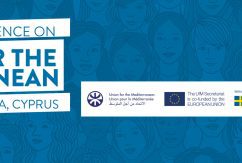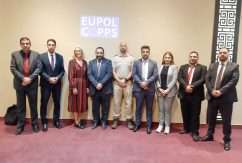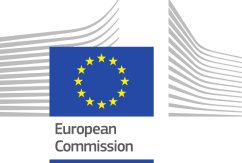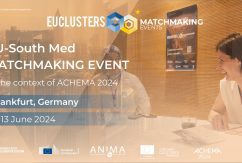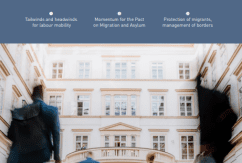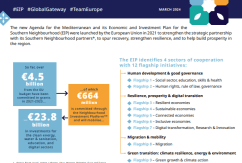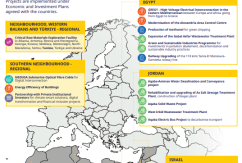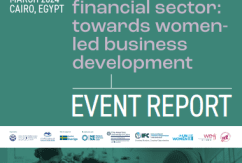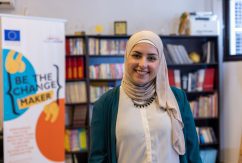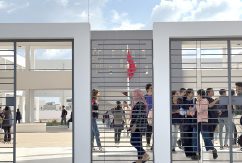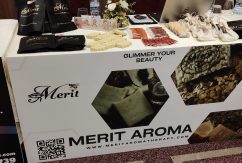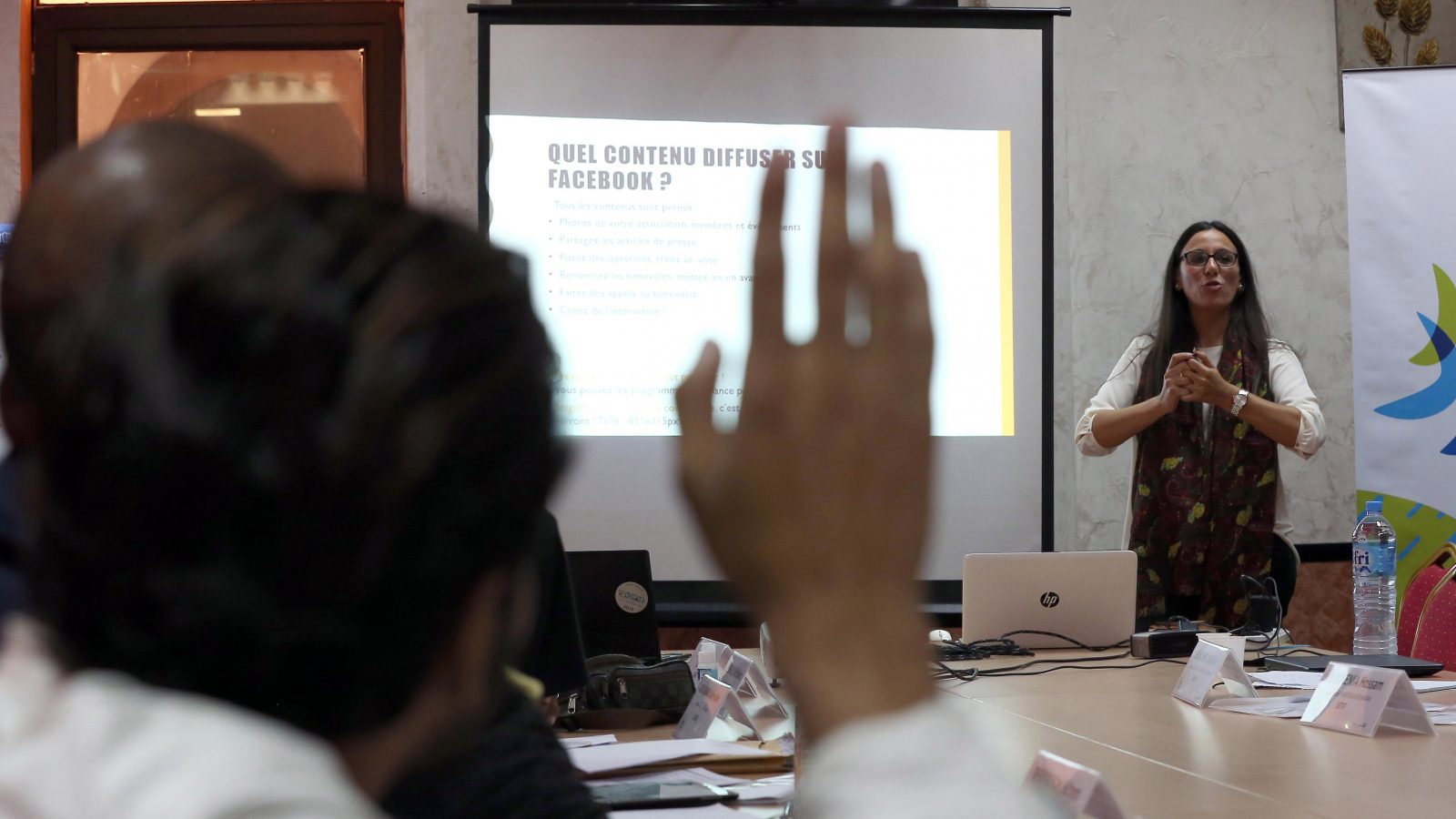Sharek: Working to Support Youth Involvement
Young Algerians are getting involved. They are full of energy and want to actively participate in public life. The Constitution and laws of Algeria encourage young people to get involved in the development of their country. Funded by the European Union and created by the Sidra association, the Sharek programme aims to give youth organisations the tools to allow them to become reliable partners for government authorities.
The Sharek programme offers a real challenge for the Sidra association, that of providing the tools needed for 20 different youth organisations to get fully involved in public life. “There are a lot of youth organisations in Algeria. But they tend to work in isolation, sometimes without any concrete projects. Yet the young members of these organisations are skilled, full of good intentions, and want to participate in the life of their towns. The programme was created to give them a hand by providing them with the necessary tools to become responsible and knowledgeable actors for community development,” said Meriem Chikirou Director of the Sharek programme and Secretary General of the Sidra association.
Partnerships
Sharek doesn’t just increase the capabilities of these associations. It also aims to make them reliable partners for government authorities. “The new Algerian Constitution considers youth to be a vital force for the country. In order to establish the framework for a constructive partnership, we have to forge strong ties with government authorities and give the youth the tools they need,” added Meriem. Article 37 of the Constitution of February 2016 provides that “youth is a [vital] force in building the country. The State shall attend to generating all the conditions that guarantee the development of their capabilities and stimulate their energies.” The Constitution also advocates in favour of the creation of an advisory body, the Higher Council for Youth.
In concrete terms, Sharek centres around four focus areas: increasing the capacities of youth organisations (in French: organisations de jeunesse, OJ) to organise and run programmes; developing OJs’ capacities in terms of making themselves heard and following public agendas and policies; increasing the presence of OJs on social networks and in traditional and digital media; and pursuing greater collaboration and dialogue between OJs themselves and between OJs, local authorities, and other stakeholders. According to Meriem Chikirou, the government has shown that is has the “political will to allow the youth to get involved in public life”. She considers that the organisation of local elections (municipal and provincial councils) in November 2017 is a great opportunity for youth organisations to create ties with newly elected office holders.
Nation-Wide Reach
The Sharek programme is characterised by its nation-wide reach. It involves twenty youth organisations. From 4 October to 6 October 2016, their representatives participated in a training session on media and social networks held by Nawel Guellal, director of the Human Development Network consulting firm. “Participants learn to use efficient and modern communication tools to publicise and showcase their activities. They also have to understand the importance of maintaining good relations with journalists and the media,” she said. According to Nawel Guellal, media coverage of these associations’ activities proves that they “have nothing to hide from the public”.
Manuscripts and the Meteorite
A resident of Tamentit, an oasis in the Adrar province (1,500 kilometres south of Algiers), Salah-Eddine Abdelkhalek also took part in this training session. He is a 26-year-old member of the association for the Rehabilitation of Tamentit’s Cultural Heritage and has a diploma in electronic engineering. “Our village has exceptional potential in terms of tourism. Our ancient manuscripts, some of which date back to the 2nd Hegira century (9th century), are priceless. Texts on religion, medicine, and philosophy can be found in these goatskin parchments. Our association campaigns to ensure that the preservation of this cultural heritage takes place in good conditions, given that these manuscripts belong to families living in Tamentit.” For Salah-Eddine, foggaras (an ancient system used for the irrigation of palm groves and orchards), centuries-old houses, and the traditions of the inhabitants of this oasis in the Touat region must be included in these heritage preservation campaigns. “Our association is convinced that our small community can create wealth. Tamentit has the power to become an important tourist attraction in southern Algeria.” According to Salah-Eddine, the participation of his association in the Sharek programme will provide “expertise” in project building, the possibility to “work as part of a network”, and the development of “long-lasting relations with public authorities”. Once they have acquired the skills they need, Salah-Eddine and his friends also plan to make the population’s dream come true by returning the Tamentit iron meteorite back to the village. “It had been in the village since the 14th century, but was taken to the Paris Natural History Museum by French scientists during the era of colonisation. It is now on display in a French theme park. This meteorite unequivocally belongs to the population of Tamentit. It’s rightfully ours,” the young man said.
Improving Skill Sets
In Batna (350 kilometres southwest of Algiers), the Future Association for Development (in French: association Futur pour le développement, AFD) took on the mission of supporting the participation of the youth in public life. Mounia Belbahri, 35 years old, is the association’s communications manager. She explained that proper training is deeply needed. “We try to be attentive to the needs of the youth so as to identify the issues they are confronted with and come up with solutions. We also support women from the Batna province by developing aid programmes to encourage women to become entrepreneurs.” The AFD’s extensive experience made it possible to get in touch with other associative networks throughout the country, start charity activities, and create an Advisory Youth Council in Batna. “Participating in the Sharek programme is a great opportunity for our association. It helps us improve our skill sets and makes it possible to create new networks for cooperation.”
This notion of multi-faceted cooperation is the goal of Sharek’s creators. “Partnerships will first be created between the associations participating in the programme and then expanded to other organisations to form an associative network on a national scale. At the same time, we will forge relationships with public authorities,” said Meriem Chikirou. For her, the budget of €243,000 provided by the European Union has been essential to creating of such an ambitious programme.
